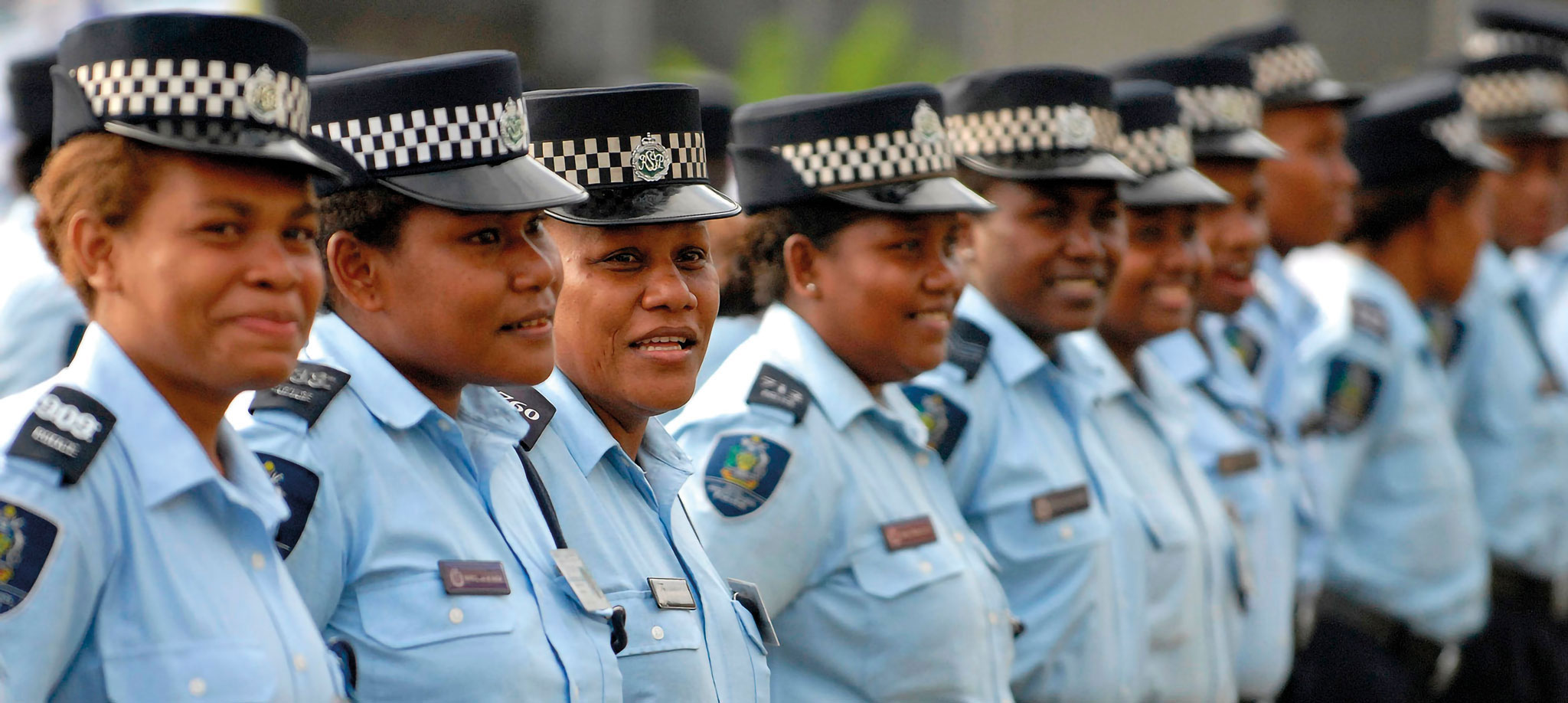After more than 20 years as a public servant in locations as diverse as Canberra, Honiara, Port Moresby and Shanghai, Leilani Bin-Juda is pleased to be back on home turf working at the Torres Strait Treaty Liaison Office on Thursday Island. Working with long-serving DFAT officer and fellow Torres Strait Islander Ugarie Mene, it’s the first time the office has been staffed by an all-islander team.
Global diversity is in Leilani’s blood––quite literally. Her great-grandfathers were from Japan, China, the Philippines, Indonesia, Jamaica and Niue, and her great-grandmothers from various islands of the Torres Strait.

Leilani Bin-Juda. Image credit: Nathan Fulton/DFAT
Leilani grew up in Cairns before attending university in Rockhampton. She moved from the tropics to Canberra to take up a graduate position before working at the National Museum of Australia as a curator. In this role, Leilani delivered exhibitions for the Torres Strait Gallery and was subsequently asked to return to Thursday Island to help establish the Gab Titui Cultural Centre. ‘To be able to come home and do this with the national and international experience I had in that field was an absolute honour and privilege’, Leilani says.
This experience inspired her move to work in cultural diplomacy at the Department of Foreign Affairs and Trade 10 years ago. Since then she has headed up a cultural program for a world expo, and worked on economic and gender issues in various locations.
The best thing about my job… is maintaining the trust of traditional inhabitants and agencies to make this treaty work effectively.
Leilani is now focused on the Torres Strait Treaty. This Treaty defines the border between Australia and Papua New Guinea and protects the traditional way of life of the communities in the Torres Strait Protected Zone. Leilani is delighted to be working on something so close to her family’s history and important for Australia and the region. ‘I'm very passionate about that…I'm working with traditional inhabitants on both sides of the border to maintain that level of security and safety’, she says.
Leilani’s job sees her working with 12 federal, state and local government agencies on the ground to implement the Treaty, covering issues as broad as immigration, border protection, fisheries, the environment and health.
She and her colleagues regularly visit the 13 Papua New Guinea coastal villages and 14 Torres Strait island communities to discuss Treaty issues. Leilani emphasises, ‘The most important ingredient to everything that we do under the Treaty is the liaison and discussions that we have with traditional inhabitants on both sides of the border, because at the end of the day the Treaty works because traditional inhabitants make it work on the ground’.
It is less than four kilometres from the Papua New Guinea mainland to the nearest populated Australian island, and communities living in the Torres Strait have longstanding traditional connections. ‘The connections between Australia and Papua New Guinea, or the Torres Strait and Western Province in particular, spans thousands of years, 6,000 years plus’, Leilani says.

Leilani (right) with colleague Ugarie Mene. Image credit: Halisha Yamashita
The Treaty includes an innovative arrangement that allows traditional inhabitants to move visa-free between communities for traditional purposes, such as attending christenings and funerals. Leilani and other officials ensure that this travel is not abused. Treaty provisions also ensure Australia is kept safe from the spread of diseases and that traditionally caught but now endangered sea animals are fished sustainably.
Leilani truly loves her job. ‘The best experience I've had is maintaining the trust of traditional inhabitants and agencies to make this Treaty work effectively’, she says.




